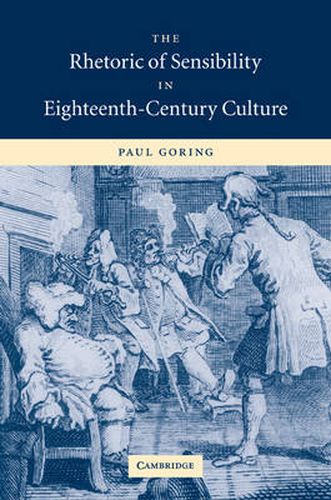Readings Newsletter
Become a Readings Member to make your shopping experience even easier.
Sign in or sign up for free!
You’re not far away from qualifying for FREE standard shipping within Australia
You’ve qualified for FREE standard shipping within Australia
The cart is loading…






The Rhetoric of Sensibility in Eighteenth-Century Culture explores the burgeoning eighteenth-century fascination with the human body as an eloquent, expressive object. This wide-ranging study examines the role of the body within a number of cultural arenas - particularly oratory, the theatre and the novel - and charts the efforts of projectors and reformers who sought to exploit the textual potential of the body for the public assertion of modern politeness. Paul Goring shows how diverse writers and performers including David Garrick, James Fordyce, Samuel Richardson, Sarah Fielding and Laurence Sterne were involved in the construction of new ideals of physical eloquence - bourgeois, sentimental ideals which stood in contrast to more patrician, classical bodily modes. Through innovative readings of fiction and contemporary manuals on acting and public speaking, Goring reveals the ways in which the human body was treated as an instrument for the display of sensibility and polite values.
$9.00 standard shipping within Australia
FREE standard shipping within Australia for orders over $100.00
Express & International shipping calculated at checkout
The Rhetoric of Sensibility in Eighteenth-Century Culture explores the burgeoning eighteenth-century fascination with the human body as an eloquent, expressive object. This wide-ranging study examines the role of the body within a number of cultural arenas - particularly oratory, the theatre and the novel - and charts the efforts of projectors and reformers who sought to exploit the textual potential of the body for the public assertion of modern politeness. Paul Goring shows how diverse writers and performers including David Garrick, James Fordyce, Samuel Richardson, Sarah Fielding and Laurence Sterne were involved in the construction of new ideals of physical eloquence - bourgeois, sentimental ideals which stood in contrast to more patrician, classical bodily modes. Through innovative readings of fiction and contemporary manuals on acting and public speaking, Goring reveals the ways in which the human body was treated as an instrument for the display of sensibility and polite values.